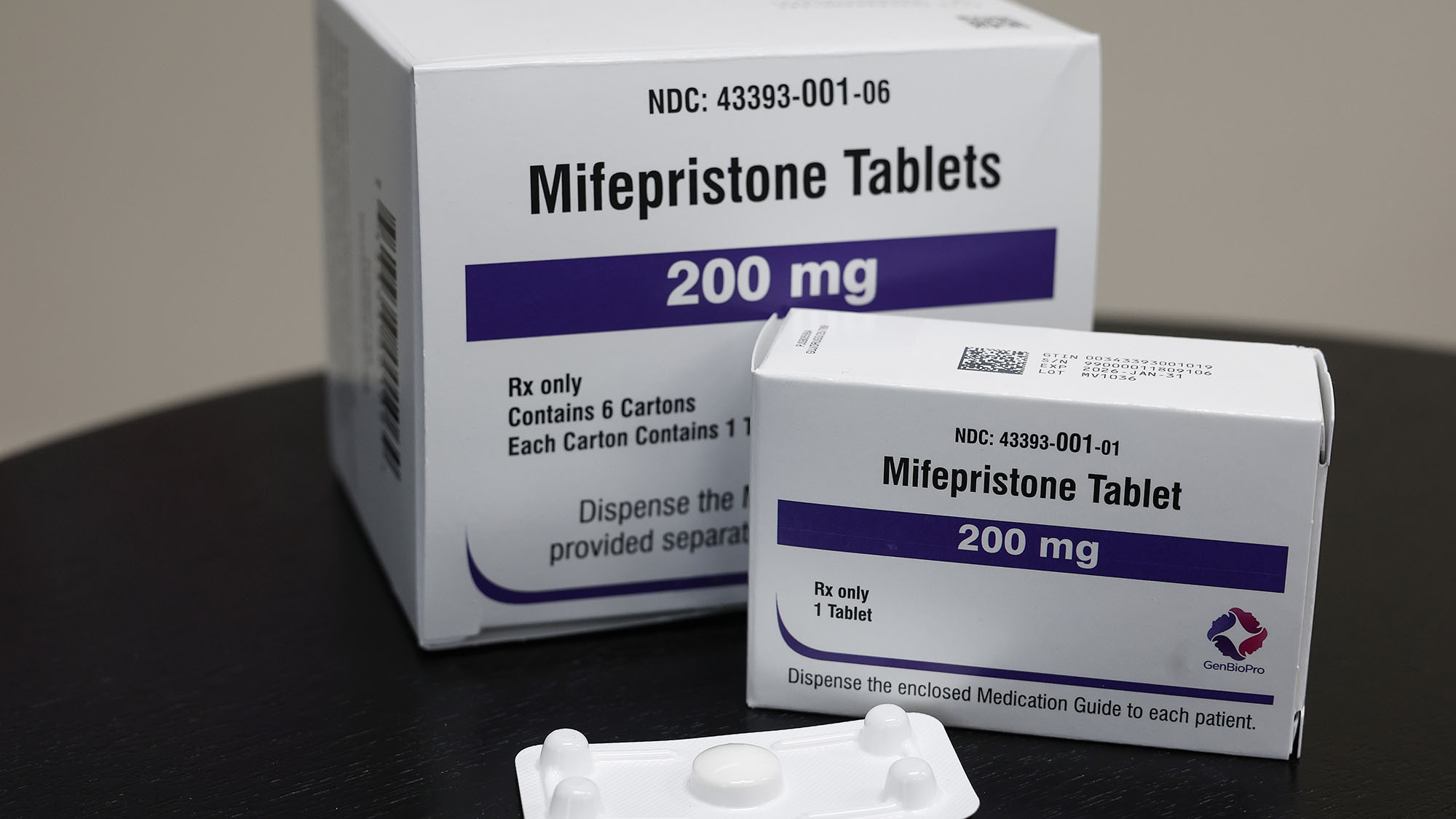

On the evening of April 21, the Supreme Court ruled to allow the drug mifepristone to remain on the market, AP reports. The case continues in lower courts, but access to the drug will remain, for the time being. The restrictions on mifepristone were set to take effect at 11:59 PM EST eastern time on Friday.
Mifepristone is the most widely used abortion medication in the United States. It works by blocking the pregnancy hormone progesterone, which makes the uterus unable to support a pregnancy. It is the first pill that can be taken in a medication abortion. As part of a two-pill regimen, it is followed by another medication called misoprostol which can be obtained with a traditional prescription and has been FDA approved since 2000.
According to the ruling on Friday, people who wish to terminate their pregnancy can still obtain the medication by mail. Mifepristone can be used up to 10 weeks into pregnancy. Mifepristone’s generic version GenBioPro will also remain available. The ruling to block restrictions on mifepristone passed in a vote of 7-2, with Justices Alito and Thomas dissenting. It will continue to be available in states that allow abortion. In the states that have banned abortion, mifepristone will be available on the grey market, Jezebel points out.
[Related: The court ruling banning the abortion pill is based on bogus science.]
In the decision, the justices weighed arguments that the restrictions on the drug from lower-court rulings would disrupt the availability of the drug.
On April 7, US District Judge Matthew Kacsmaryk from Texas put the Food and Drug Administration’s (FDA) approval of the abortion pill mifepristone on hold. This drug is known to be safe when used properly, and has a fatality rate of only 0.0005 percent, according to the FDA.
In Kacsmaryk’s 67-page decision on April 7, he ruled that the FDA “improperly” approved the abortion pill mifepristone more than two decades ago. Kacsmaryk wrote that the FDA overstepped its authority in approving the drug partially by using a specialized review process reserved for drugs to treat “serious or life-threatening illnesses.” In reality, the FDA took its time with mfipristone’s approval and did not use an accelerated approval process. It went through three rounds of reviews over a period of four years in the 1990s. Each round issues a letter stating that the safety and efficacy data on the drug was on solid ground.
[Related: The court ruling banning the abortion pill is based on bogus science.]
The FDA was not the first regulatory agency to approve the drug. It was approved for use in France in 1988. Roussel Uclaf, the French company who first manufactured the drug briefly suspended its distribution following threats from anti-abortion groups. According to the Congressional Research Service, that suspension lasted only two days before it was ordered back on the market by the French government.
Currently, FDA regulations state that pregnancy is a medical condition that can be serious and life threatening, but Kacsymaryk, who is not a scientist, argued it is a “natural process essential to perpetuating human life.” According to a report from the Centers for Disease Control and Prevention (CDC), the US had one of the worst rates of maternal mortality in the country’s history in 2021. The study found 32.9 maternal deaths per 100,000 live births, which is more than 10 times the estimated rate of other high income countries.
[Related: Competing rulings put access to abortion pill in jeopardy.]
At almost the same time as Kacsmaryk’s decision on April 7, US District Judge Thomas O. Rice, of Washington State essentially ordered the opposite decision. Rice advised US authorities not to make any changes to mifepristone in at least 17 states where Democrats sued in a legal effort to protect the medication’s availability.
Kacsmaryk gave the Biden administration and mifepristone manufacturer Danco Laboratories, one week to appeal and seek to keep his ruling on hold, which was filed almost immediately after the ruling.
On April 12, a subsequent decision by the 5th US Circuit Court of Appeals’ did not suspend the FDA’s approval of mifepristone, but kept in place restrictions that would prevent the drug from being sent to patients.
In a statement from the White House, President Joe Biden wrote, “I continue to stand by FDA’s evidence-based approval of mifepristone, and my Administration will continue to defend FDA’s independent, expert authority to review, approve, and regulate a wide range of prescription drugs.”
